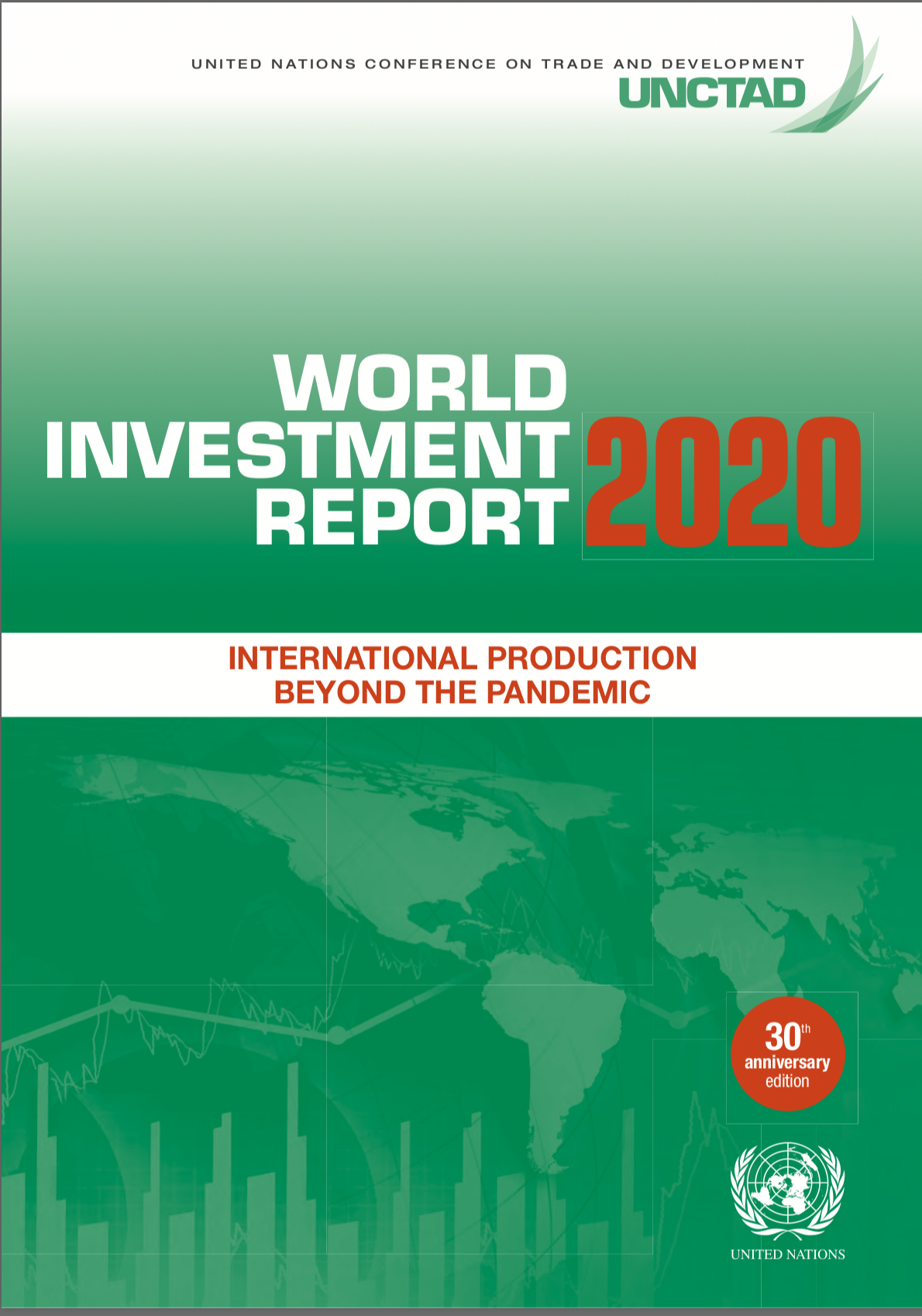Filters
World Investment Report 2020
Global flows of foreign direct investment (FDI) will be under severe pressure this year as a result of the COVID-19 pandemic. These vital resources are expected to fall sharply from 2019 levels of $1.5 trillion, dropping well below the trough reached during the global financial crisis and undoing the already lackluster growth in international investment over the past decade. Flows to developing countries will be hit especially hard, as export-oriented and commodity-linked investments are among the most seriously affected.
The consequences could last well beyond the immediate impact on investment flows. Indeed, the crisis could be a catalyst for a process of structural transformation of international production this decade, and an opportunity for increased sustainability, but this will depend on the ability to take advantage of the new industrial revolution and to overcome growing economic nationalism. Cooperation will be crucial; sustainable development depends on a global policy climate that remains conducive to cross-border investment.
The World Investment Report, now in its thirtieth year, supports policymakers by monitoring global and regional FDI trends and documenting national and international investment policy developments. This year’s Report naturally takes stock of the COVID-19 crisis. It also includes a new chapter, added at the request of the UN General Assembly, on investment in the Sustainable Development Goals. This analysis shows that international private sector flows to four out of ten key SDG areas have failed to increase substantially since the adoption of the goals in 2015. With less than a decade left to the agreed deadline of 2030, this makes it all the more important to evaluate the implications of the expected changes in the investment landscape over the coming years.
As such, this year’s World Investment Report is required reading for policymakers and an important tool for the international development community. I commend its information and analysis to a wide global audience.



